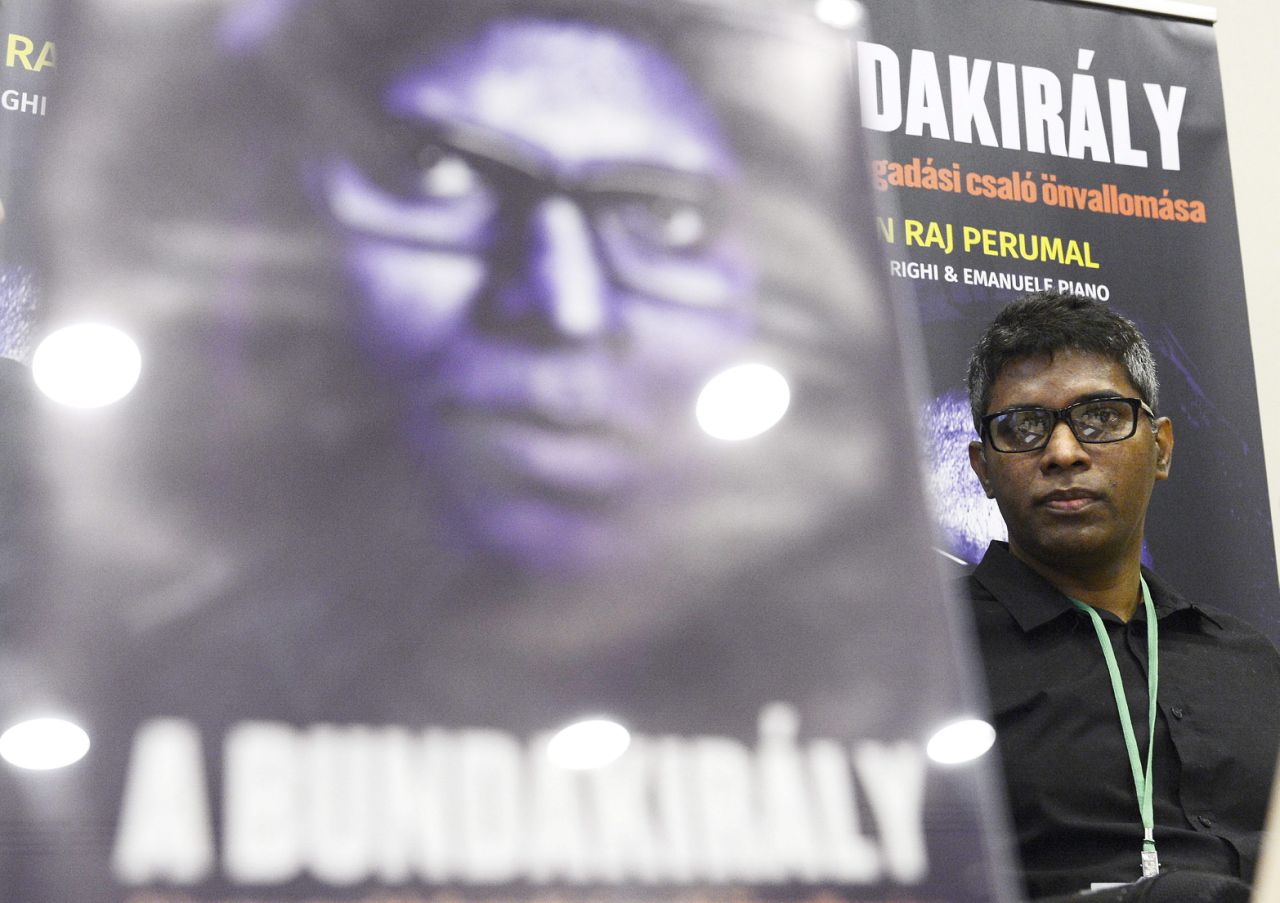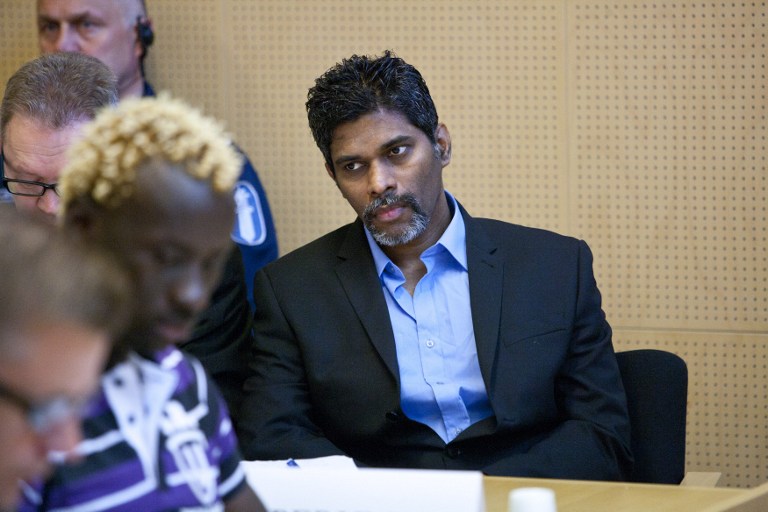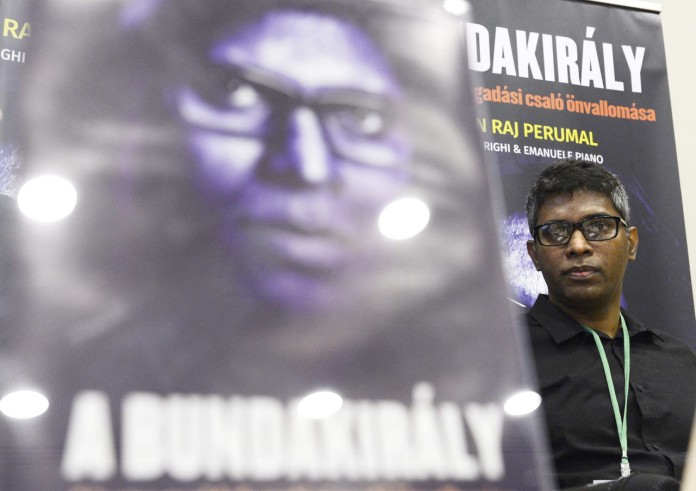SINGAPORE: Wilson Raj Perumal, the man dubbed the most notorious football match-fixer in the world, could be released from house arrest in Hungary and sent home to Singapore in 2017, Channel NewsAsia has learned.
The 51-year-old, believed to have rigged up to 100 matches globally, has been based in Budapest since 2012 under a witness protection programme while aiding investigations into widespread corruption in football.
“The trial is still ongoing… It is likely to end next year,” Perumal said via Facebook messages. “After that, the decision is on Hungary to give me a status to stay or deport me back to Singapore.”
He is a wanted man in his homeland after fleeing abroad to escape a five-year jail term for running over an auxiliary policeman in 2009. But should he be returned to Singapore, Perumal could also face the prospect of detention – a fate met by fellow match-fixer Dan Tan Seet Eng, who has been held since October 2013 under the Criminal Law (Temporary Provisions) Act.
Little wonder then, that Perumal hopes to remain in Hungary with his Norwegian wife, three daughters and a son due in December. His children attend a local nursery and his spouse is studying for a psychology degree. Meanwhile Perumal “survives with limited funds” after gambling away nearly S$8 million he has claimed to have earned from his illicit activities.
“I am unemployed. I don’t speak Hungarian,” Perumal added. “I do some online jobs to get some funds – they are not permanent.”
What are these online jobs? “Studying irregular betting patterns for a company I cannot disclose,” he replied.
Perumal said another source of income was his 2014 autobiography, titled “Kelong Kings: Confessions of the world’s most prolific match-fixer”. Kelong is a colloquial term used to suggest cheating in sport.
Last year, the authors announced that film rights to the book had been optioned by Hollywood Gang Productions, the company behind movies like 300 and Immortals. Perumal said he hoped this would translate into some form of financial payoff.
Asked if he would consider a new career for the sake of his family, he said: “Maybe I am planning some business…The noose is getting tighter.”

Perumal presenting the Hungarian edition of his book “Kelong Kings” in Budapest in 2014 (Photo: AP/MTI/Tamas Kovacs)
A LIFE OF CRIME
Perumal’s first brush with the law stretches back more than thirty years. Between 1983 and 1992, he was jailed and fined for a slew of offences including theft, forgery, housebreaking and impersonation.
His maiden foray into match-fixing came in 1994, when he gave over S$2,000 to a team captain to throw a local match. Perumal was punished with a year of imprisonment. Five years later he was back behind bars – this time for attacking local league footballers Max Nicholson and Ivica Raguz with a hockey stick to prevent them from playing the next day. In 2003, he was sentenced to 16 months jail for bribing a referee in Singapore – his final incarceration on these shores before going overseas.
Between 2007 and 2009, he paid off Zimbabwean players and officials to fix friendlies in Asia on a massive scandal, from which the country’s football fraternity has yet to recover. One of these was a match against Singapore played in August 2007:
And in 2010, Perumal brokered a friendly game between Bahrain and a phoney Togolese side comprising imposters. In his memoir, he claims he took Nigeria and Honduras to the final rounds of the 2010 FIFA World Cup by rigging their qualifying matches, as well as having fixed football matches at the Atlanta 1996 and Beijing 2008 Olympics.
In 2011, Perumal was finally arrested in Finland, allegedly on a tip-off by a Singaporean who was a fellow member of a match-fixing syndicate. Possibly realising he had been double-crossed, Perumal outed Dan Tan as the boss of a worldwide match-fixing network based in Singapore. He served half of a two-year sentence before being extradited to Hungary to assist as an informant in a global match-fixing probe.
Even under house arrest, Perumal managed to make headlines when he was re-apprehended by Finnish police in 2014 under an international arrest warrant, after travelling to at least four countries in Europe. Singaporean authorities made a move to take Perumal into custody, but the effort failed due to the lack of an extradition treaty with either Finland or Hungary.
Earlier this year, Singapore media reported that Perumal had reached out to former Zimbabwean football chief Henrietta Rushwaya, asking her to fix matches in the South African league as well as at Rio 2016.
“Rushwaya’s story has no credibility,” Perumal told Channel NewsAsia. He declined to elaborate.

Perumal in a Finnish courtroom in 2011 (Photo: AFP/KAISA SIREN/LEHTIKUVA)
“SINGAPORE WAS NEVER A MATCH-FIXING HUB”
Perumal had plenty to say, however, about recent comments made by renowned match-fixing investigator Chris Eaton – who was FIFA security head when the Singaporean was brought to justice in 2011.
Eaton told an international conference in November that Singapore – which he once labelled an “academy for match-fixers” – had cleared its name with the capture of Tan. Malaysia is now the “epicentre” of match-fixing in Southeast Asia, a region which continues to perpetuate widespread illegal betting, added Eaton.
“I cannot understand why Mr. Eaton never fought against match-fixing when he was the head of security with FIFA,” said Perumal. “It’s only now Mr. Eaton is vigorously campaigning against match-fixing.”
In two years at FIFA, Eaton successfully investigated multiple match-fixing instances across South America, Europe, Africa and Asia. He also introduced numerous initiatives such as enhanced intelligence gathering; greater protection for whistleblowers and a partnership with Interpol.
“Match-fixing is not only taking place in Southeast Asia,” Perumal argued. “It is also rife in Russia, Latvia, Lithuania, Estonia. The FAs (football associations) are busy cleaning the mess.”
“Right now, I think Malaysian football is at its best. It is very clean; the movement of the odds in the M.League is stable. Eaton will have to substantiate his accusations against these countries and not make baseless accusations.”
“Singapore was never a hub like what Chris said,” he continued. “Dan Tan was stationed in Slovenia for a good one year and doing all the bets for fixed matches. Only in 2010 he stationed himself in Singapore because he was afraid to go to Europe after his friends got arrested in Croatia.”
“I came from Singapore; so were some of my colleagues. That does not make Singapore a hub. There are others in Malaysia, Europe and Indonesia.”
“If you look at the Sapina brothers, they were prolific as well,” said Perumal, referring to the notorious Croatian match-fixing trio of Ante, Milan and Filip. “Eaton never once mentioned Germany where the brothers operated from.”
“Singapore football, in my opinion, is clean.”





